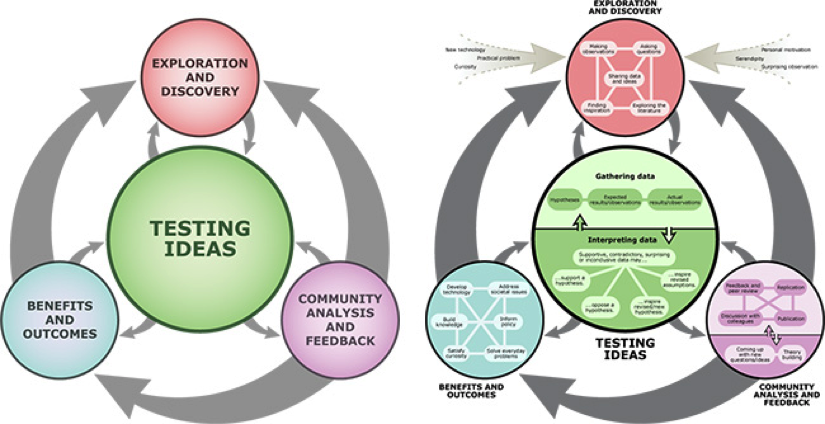I would like to point out that even though research is suppose to be pure it is still being conducted by human beings. Human beings can not put aside all their beliefs.
This affects anything written that is not absolute truth, however, there are few absolute truths.
an example of an absolute truth is the existence of gravity. An absolute truth is something that is true all the time. Try taking a book holding it chest high and releasing it. Tbe book will always fall to the ground. However, many people confuse truth with the amount or level [of belief] that they have in something.
Right. Philip K. Dick said that reality is that which, even if you don't believe in it, is still there.
But the words we fit to a reality may be a problem. For example, many say the sun rises in the East and sets in the West. Well, does it? People who figured out that it's not about the sun moving, it's about the EARTH moving got in a lot of trouble with the Catholic Church in the Renaissance. Bruno was burned alive, in fact. I'd say there are almost no facts at all: nearly all facts are opinions, and poorly stated.
...a perfect example of this is climate change: climate change is a perfect example of science by consensus. You can not have an absolute truth if you need it verified by consensus. The existence of gravity is an absolute truth not a consensus of agreement by some scientist. Tbe principles of climate change do not always hold true.
Or ever hold true. It's a bucket of hogwash, just like all the "Ice Age Is Coming" that filled up SCIENCE magazine (which is a famous hard science journal) in the 1970s. I took, and read, much as described by the OP, SCIENCE for 25 years. Scientific family. I was young, I totally believed all the "Ice Age Coming" scare articles. They proved it again and again, but now it's out of fashion and the opposite is in fashion. And now I'm not so naïve as to believe a lot of ha-ha "scientific" stuff and nonsense perpetrated by people desperately climbing for promotion and grants. I know way too much about science to believe in it. Indeed, I stopped taking SCIENCE when they got a truly bad editor that pushed "Global Warming" as a political position that had to be promoted and propagandized to Save The World.
Sheeeeesh. Just keep your mind open, I'd say. Very little is "true" longer than today.
i respectfully disagree: We know that every time you drop a book it is going to fall to the ground that is an absolute truth.

